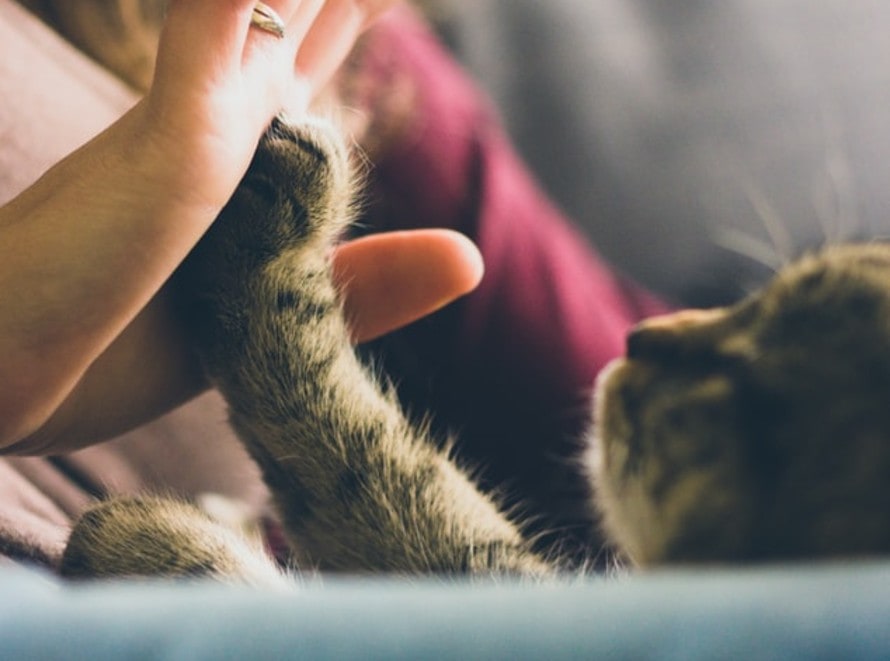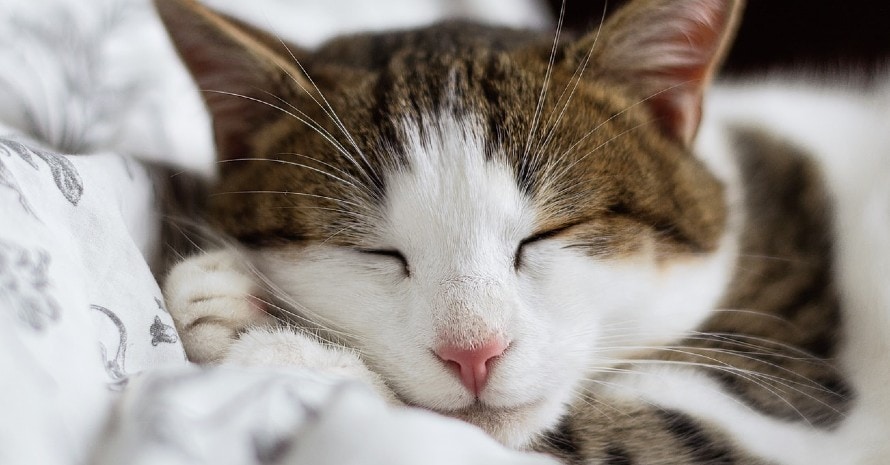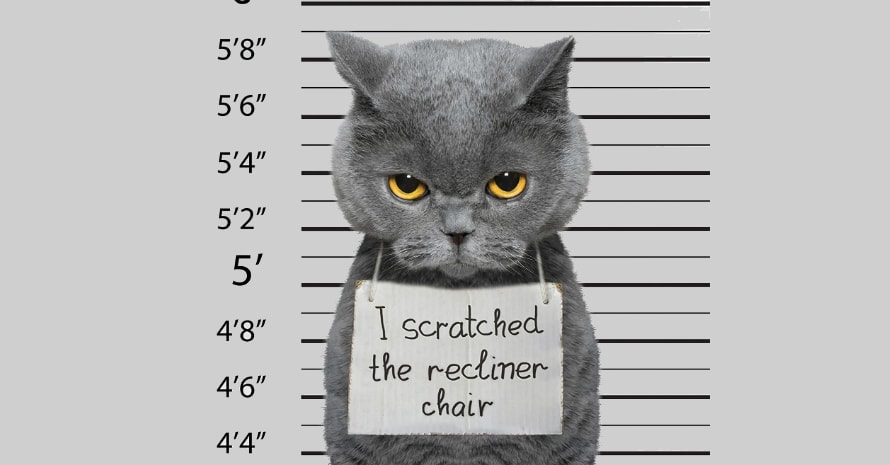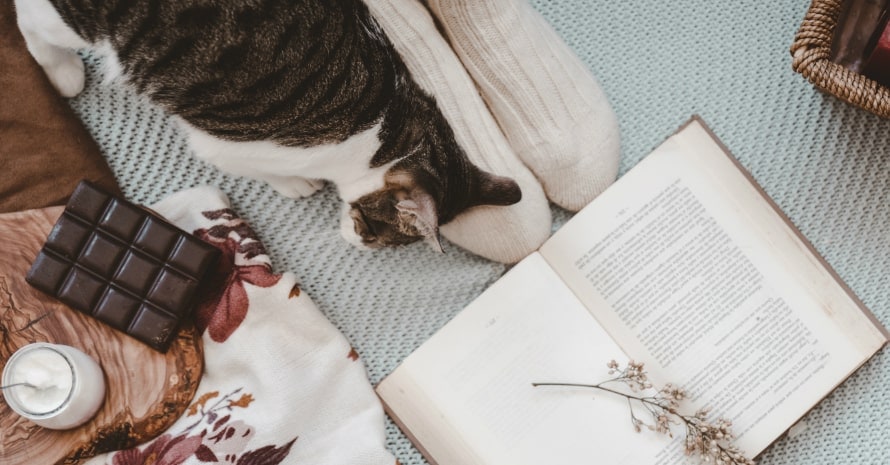What does it mean when a cat licks you then bites you? It is actually a common issue among kitties. First, they give you one or two friendly licks. Then, all of a sudden, they test the sharpness of their fangs on your soft human flesh. So, why does my cat lick me then bite me?
Even though such bites aren’t painful most of the time, cat-owners are concerned with such behavior. Is it a demonstration of brute force? Doesn’t your tabby like you anymore? Is there a medical reason behind that?
In reality, your kitty can be driven by different motives when licking and biting you. In most cases, there is really nothing to worry about. Although, you should pay attention to the situational context in which biting occurred.
Unpredictable Ocean of Feline Emotion
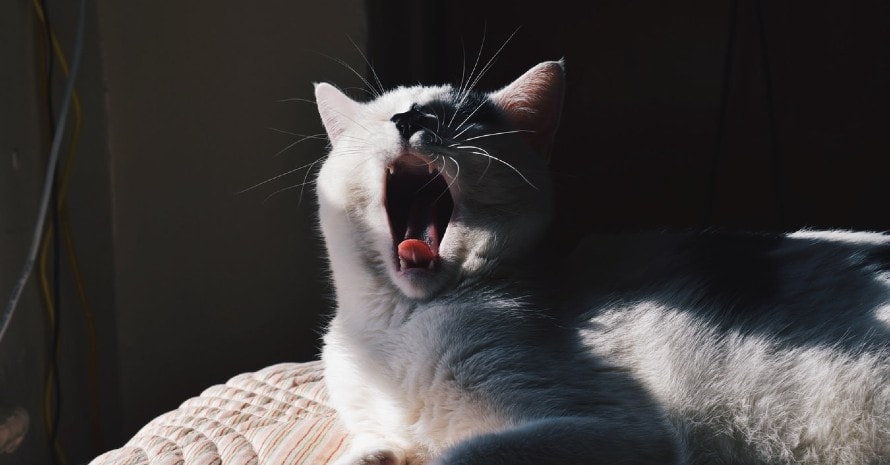
Despite looking calm and indifferent, cats actually have a rich range of emotions. They can be anxious, happy, intimidated, unimpressed, bored, and even compassionate. Did you know that your cat can read your own emotions almost like a book?
And to share these emotions with you, they use a unique language. And a simple meow is just the tip of an iceberg. The feline language includes a rich variety of communication tools: smells, gestures, body language, rituals, etc.
Cats, like other animals, never seem to do stuff without a motive. Anything — from scratching furniture to peeing in random places — has a message. For example, if your cat steals your socks, it probably means that he/she needs toys.
And behavior is a part of that peculiar feline language too. If your kitten bites then licks, it’s trying to say something as well. But the final interpretation depends on the specific situation. Let’s review the most common ones.
Cat licking and biting me — possible reasons
Now, there are a few scenarios in which a kitty might pull such a stunt.
1. Love bites
The most popular motive behind Why do cats bite then lick mystery is not a sign of aggression. Actually, it’s love. And here’s how it works.
As you know, cats are quite tidy. Licking is a major part of their daily hygiene & beauty routine. Often, due to saliva working as a sticky agent, they get fur knots, also known as mats.
Since cats can’t use a comb, instead, they apply their own teeth to untangle these mats. Also, teeth are used for catching tiny vermin that may reside in the fur.
Licking each other is a vital part of how cats socialize in pride or colony. This way, they show tenderness for each other, bond, and become friends. And since they easily develop a connection with a caregiver, when cats lick you, that means you’re loved.
To test that theory, continue doing what you’ve done a moment before a bite happened. If your fluffster normally remains calm and shows no signs of aggression or agitation, it was certainly a tiny love bite.
2. Playtime
A light demonstration of aggressive behavior isn’t always bad. It can also be an invitation to play and fool around for a bit.
Typically, this behavior is common among kittens or young cats who were growing up without playmates. As a research show, biting and scratching is a part of the game.
This part teaches cats some important lessons. First, they get physical exercise. Second, they learn that they can’t unleash the full force while playing or attack the pride mates for fun as it causes an immediate retaliation.
If you suddenly get a few nips from your kitty and such an attack is accompanied by a specific body language — slightly raised posterior, fluffed up tail, agitated, but not aggressive look — it’s time to play!
3. Enough of petting
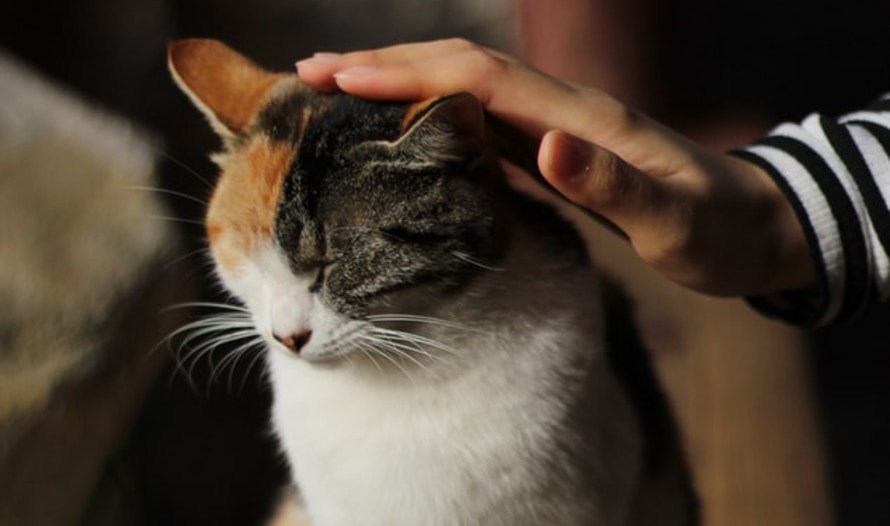
Cats are pretty straightforward. They never hesitate about showing displeasure. And a few bites, accompanied by a grumpy stare and nervously twitching tail, signal that your cat has had enough of physical contact.
When my cat nibbles me, I know it’s just a request for some private time. It may seem rude and unfriendly, but your tabby has a weak command of English. So, a few light bites is the only way for it to say: Go play somewhere else, please.
4. It’s all about cat breed
Cats are like humans. They have a different temperament, emotional IQ, and so on. Some cats are more friendly than others. Some are grumpier. And the cat breed is one of the defining factors.
A cat breed dictates inheritable traits of your pet’s character. For example, Persian cats are pretty inert. Abyssinian and Bengal cats are fond of water and enjoy swimming. Main Coon is quite friendly and calm; meanwhile, Siamese cats tend to be aggressive.
So, the knack for sudden biting could be inspired by the cat’s temperament. But it doesn’t necessarily mean that the kitty dislikes you and wants to make a fricassee from you. No, it could be either an excess of energy or sheer sensitivity to being touched.
5. Health issues
Finally, Why does my cat lick me when I pet him? could be explained by health problems. If your touch evokes pain instead of a brisk, friendly trill — it is a reason for concern.
Tight fur knots are one of the reasons why your kitty might be disgruntled. The tighter they are, the more pain your pet gets while trying to de-mat them with teeth.
Tumors, scratches, abscesses, wounds, or skin irritation could be another source of nuisance. If you touch one of those by accident, the cat will instinctively react with a mild counter-attack, like saying Be careful, I’m in pain.
Usually, if your cat doesn’t feel well, other unfavorable signs will show. For instance, your cat’s fur might lose its smoothness or glistening. While sleeping, a sick cat may keep its eyes only half-closed, and so forth.
What if biting is too painful?
To be honest, it is a bad sign. First, cats tend to control how hard they scratch/bite their friends. (You, in other words). If the bite wasn’t just a little nip but a lacerating attack — that’s worrisome. Your cat might be in serious pain or even infected with rabies.
Second, the cat’s saliva is pretty toxic to humans. The problem is, your cat has anaerobic bacteria living in its mouth. It’s called Pasteurella multocida, and it’s a pathogenic organism that can cause a variety of problems: from sepsis to bone infection and even disfigurement (!)
Yes, a simple cat bite can lead to hospitalization. So, if you experience pain and uneasiness, you should wash the wound with soap and water.
Applying a nonaggressive antiseptic is also a good idea. After that, seek medical help, as in some cases, taking a course of antibiotics is important to avoid complications.
FAQ
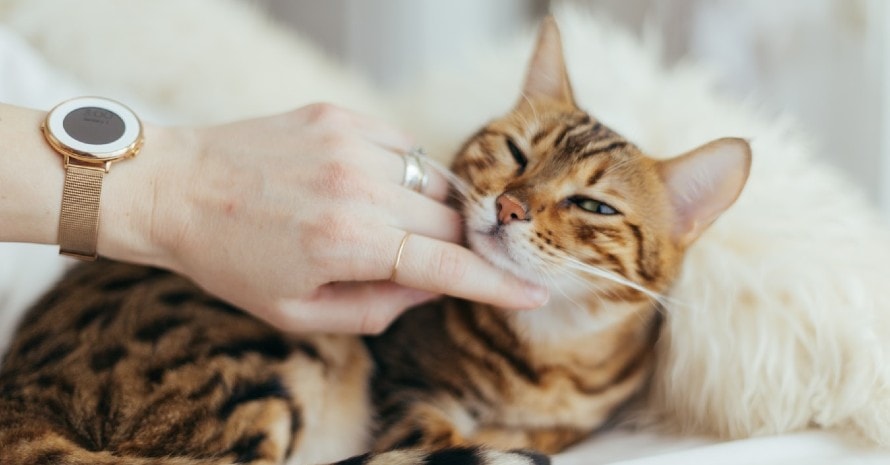
Here I provide the most common questions that can help clarify any uncertainty you may have about your cat’s behavior.
Why does my cat bite me when I pet him?
It depends on the bite, as you can see. It can be a sign of affection, invitation to play, or a request to leave the kitty alone.
Why does my cat lick and bite my fingers?
It also depends. If it’s a kitten — it’s probably teething. If it’s a grown cat, then probably, it’s an affectionate bite, a request to stop petting, or your hands smell like food.
Is it good if my cat licks me?
That means you two have a good relationship. However, cat licks best to be avoided as it’s unhygienic: this way, cats may transmit bacteria or Toxoplasmosis.
Mega Licks, Mega Bites
So, now you know what it means when a cat licks and bites. In their peculiar language, this simple gesture means a lot: from suffering to showing love and tenderness.
If you see no worrisome signs that would go along with biting, then your kitty is totally fine. It’s just that it needs more privacy. Or, on the contrary, more attention. It all depends on a specific situation. But listening to your kitty’s mood always pays off.
How often do you get licks and bites from your cat? Do you bite in return? Share your cat story with us!



